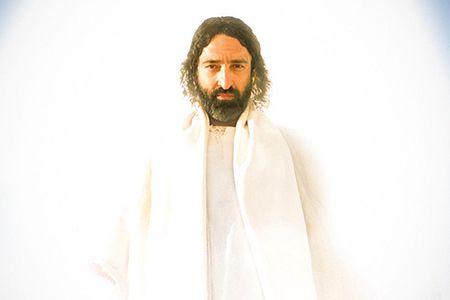 Genesis 12:1-4A
Genesis 12:1-4A
 2 Timothy 1:8B-10
2 Timothy 1:8B-10
 Matthew 17:1-9
Matthew 17:1-9
Experience the power of the word of God. No, we don’t need miracles like what happened to St. Augustine: while deep in the darkness of sin and chained by fleshly desires, he was miraculously directed to read Paul’s stern reproach against orgies and drunkenness, promiscuity and licentiousness in Romans 13, causing him to convert to Christ. Nor do we need a vision from God to help us understand His message - the way Peter was made to understand the universality of the mission of the Church (cf. Acts 10:9-35). What we need is our willingness to open our hearts to let the Holy Spirit come in when we listen to the Sunday Mass readings. That’s all we need to do, and the Holy Spirit will take care of the rest. Ready? Together let’s plead prayerfully:
Holy Spirit, the Advocate and Guardian of truth, fill our hearts and open our ears. Enable us to feel the power of your word - a word that is incarnate and living; a word that must be proclaimed, received and experienced; a word that commands our worship and veneration (cf. Verbum Domini, n.7).
Already we can sense clearly how the word of God has come alive right before our eyes in the 1st reading where we read: “All the communities of the earth shall find blessing in you” (Genesis 12:3). The blessing promised to Abraham is no ordinary blessing. What this Messianic passage refers to is universal salvation through Christ, whose genealogy traces back to Abraham. The process God took to prepare and fulfill this promise spanned thousands of years in human history, going back not only to Abraham but also to our first parents whose original sin made the blessing necessary. The gospel in a nutshell is a narrative on how this promise to Abraham was brought to fulfillment through his descendent, Jesus Christ. The word of God is truly alive. It lives in the form of a real and developing history - the history of Israel and of the Church; it speaks to our hearts and interacts with the world in the form of a human person, Christ incarnate, and the Church he instituted.
In the 2nd reading, Paul’s exhortation is for his beloved disciple, Timothy, to “bear your share of hardship for the gospel” (2 Tim 1:8). Just the same-old-same-old, you say? Think twice. Or, pray harder to ask the Holy Spirit to help you experience the full force of His word. But for now, let’s just put aside all the goodies in this very condensed passage and remember just one verse which serves as an important link to this Sunday’s gospel: “[Jesus] destroyed death and brought life and immortality” (2 Tim 1:10). Later in this reflection, we shall examine this verse again to understand its connection to the theme of this Sunday’s gospel. Suffice to say in here that this is a powerful verse that had once hit me like a truck in our first encounter
The electrifying power of the word of God is in full display in the gospel reading where Peter, James and John witnessed first-hand the Transfiguration of our Lord. According to Matthew, Jesus “was transfigured before them; his face shone like the sun and his clothes became white as light” (Mt 17:2).
What is depicted in this amazing scene, which has all the dramas of a Hollywood extraterrestrial movie, is more than just a miracle. It is a foretaste, or a preview, if you will, of Jesus’ glorious coming in his resurrected body (cf. CCC 556). As alluded to earlier in the 2nd reading, not only did Jesus destroy death through his death and resurrection, he also “brought life and immortality” (2 Tim 1:10). What life? True and everlasting life; life that Jesus promises we can have “abundantly” (John 10:10); life that only Jesus, who is “the way and the truth and the life”, can bring (John 14:6). What immortality? As mere mortals, our human body is subject to corruption after death. It is a body of flesh and blood, a body that often strongarms our spirit into submission to its fleshly demands (cf. Romans 7:18-19). The good news here is that although this body of ours “is sown a natural body, it is raised a spiritual body” in resurrection (1 Cor 15:44). “[I]n an instant, in the blink of an eye, at the last trumpet”, we the mere mortals with bodies of flesh and blood will be transformed to become immortals with spiritual bodies in a new world order (1 Cor 15:52)! In our resurrected selves, we will no longer experience non-stop contentions between body and spirit. The two dimensions of being will co-exist nicely in peace and harmony because they share the same spiritual attributes by virtue of Jesus’ resurrection. It is then, and only then, that we are ready for the kingdom of God. For “flesh and blood cannot inherit the kingdom of God, nor does corruption inherit incorruption” (1 Cor 15:50).
The proclamation of Jesus’ resurrection is the proclamation of a new world order, of which we in our resurrected selves will be worthy of partaking; thanks to the blessing promised to Abraham. Now we can truly understand the significance of “life and immortality” alluded to earlier in the 2nd reading and why the word of God is truly more powerful than getting overrun by a truck!
